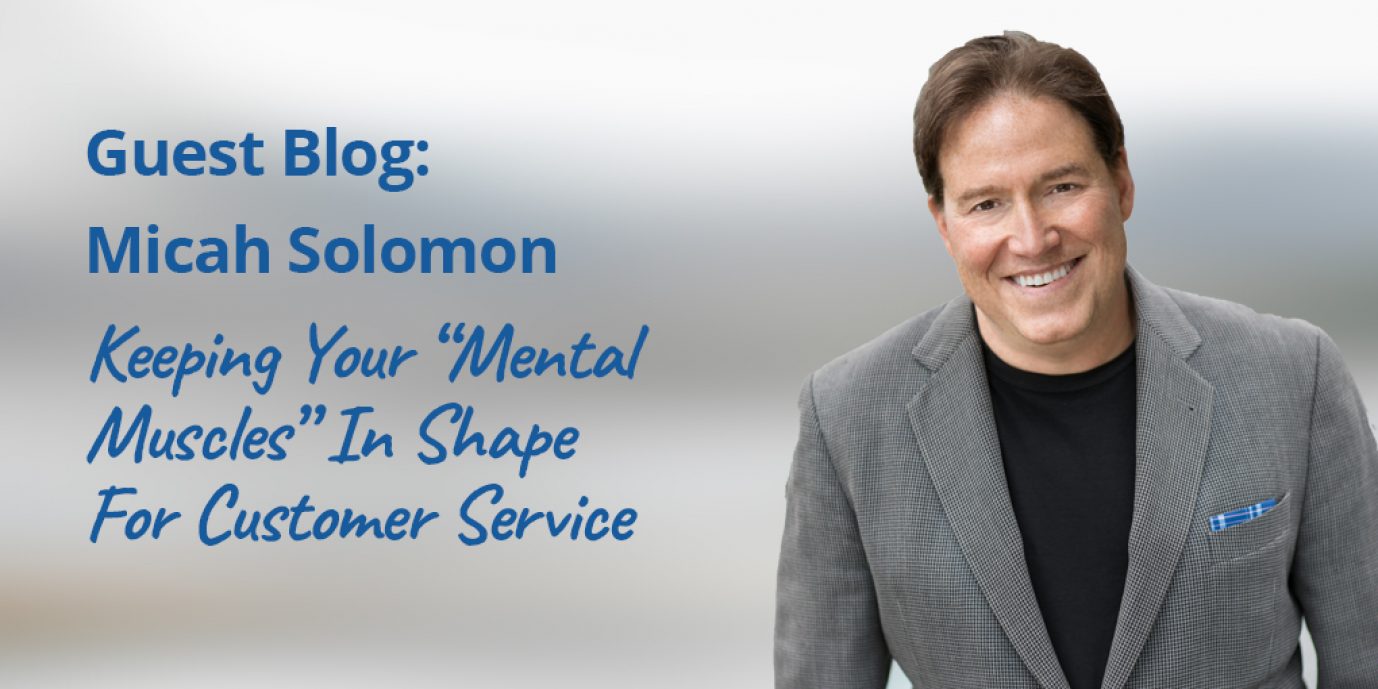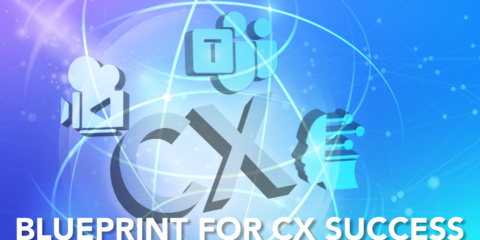Search
Contact Us
If you’ve worked for any length of time at a contact centre or in tech support or any similar setting–if you’re one of those great people who serve the public day in and day out, handset to handset, terminal to terminal, or even masked face to masked face–you know the value of the “mental muscle memory” that guides much of what you do.
It’s similar to the muscle memory that those who play an instrument or a sport owe so much to when it comes to remembering a piano sonata, a racquet grip, or where the out-of-bounds lines on the court are so that they can sink the most devastating serve in their repertoire.
In the customer service context, I’m not just talking about the training you have under your belt that allows you to use the phone system or the CRM without breaking a sweat. I’m talking about the more important parts of mental muscle memory: a default of being helpful, of actively listening, of doing everything you can to “get to a yes” for the customer in front of you. Once your mental “muscles” get these patterns ingrained, they allow you to serve your customers both spectacularly and consistently–even on those days when your back aches and your feet are cramping and your customers are more abrupt and less understanding than usual.
A tricky thing, though, about muscle memory is that it can work in either direction. Rigidity breeds rigidity. Going less than the extra mile can become a default.
This can happen on your watch as a leader, or on the watch of a prior employer, which is why some great customer-focused organisations prefer to train from scratch rather than struggle to un-teach the patterns that may have been ingrained by a rigid, stingy prior boss.
There are specific tools available to help an organisation keep things on track–and particular things that make it easy to go astray.
Support from technology
On the tech side, it’s important that your setup not take away from positivity feeling natural. The most well-acclimated agent can feel their spark die out unless you have the right systems in place to keep key information at their fingertips. It’s likewise important that collaboration is eased between agents and the rest of your organisation by functionality such as what’s found in Microsoft Teams. And that the minimal number of systems (ideally just one) are all that’s required to successfully open and close a query. And that the WFH environment feels well thought out and populated with tools such as video collaboration to ensure that everyone feels connected and engaged.
… and from service standards and training
Every organisation should have a set of bedrock customer service standards that can bring an employee back on a pro-customer keel, should they ever find themselves off-course, including a central statement of purpose long enough to be meaningful, but short enough to be memorable and actionable. It’s also valuable to have a “language lexicon” of phrases and wording that are encouraged or discouraged; linguistic “systems” like this are helpful when your mental muscles are at risk of betraying you at the end of a long shift or in the face of a customer who’s particularly adept at pushing your buttons.
Keeping those mental muscles supple
Most anyone, at any stage in a customer support career, can benefit from a new dose of customer service training to keep those mental muscles supple along the way. This training can be either delivered live (usually virtual, at present), or via an eLearning product, ideally one that’s been customised and custom-produced for your company. The advantages of a true eLearning product is that it can include more detail than live training and that it has the opportunity to include quizzes and tests that allow for more employee growth and for professional or intra-company certification upon completion.
Building a pro-customer cultural setting
A pro-customer cultural setting, or what I often call an atmosphere of positive peer pressure, is a powerful reinforcement for the muscles that you’ve developed. Positive peer pressure is why, when you walk into an Apple store, you can sense the energy of the employees all egging each other on to do better and better by their customers—whether or not they make a purchase on this particular visit; it’s what makes a visit to a true Five Star hotel so reliably and consistently a delight. Once your organization has a rollicking sense of positive peer pressure in play, I’d say you’re golden.
About Micah Solomon
Micah Solomon is one of the world’s leading authorities on customer service, company culture, and the customer experience. He’s a bestselling author, consultant, and keynote speaker whose books have been translated in more than a half-dozen languages and are the recipients of multiple awards, most recently the new bestseller from HarperCollins Leadership, Ignore Your Customers (and they’ll go away): The simple playbook for delivering the ultimate customer service experience.
Thank you!
You have successfully subscribed to our newsletter.
Sign up here to watch your selected video as well as gain access to the other videos listed here
Sign up here to watch your selected video
Sign up here to watch the videos as well access to more Tips 'N' Tricks videos
Get your free download

